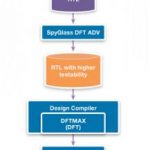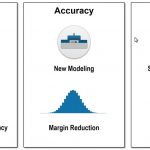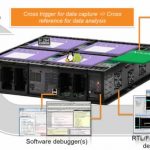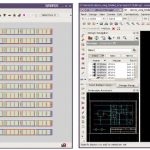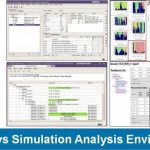Fed up with ECOing your way out of test problems? You might want to register for this webinar.When you’re building monster SoC FPGAs, you have all the same problems you have with any other SoC. That includes getting to very high test coverage as quickly as you can with a design targeted to the most advanced processes. We’re not just … Read More
Static Timing Analysis Keeps Pace with FinFET
At SemiWiki we’ve been blogging for several years now on the semiconductor design challenges of FinFET technology and how it requires new software approaches to help chip designers answer fundamental questions about timing, power, area and design closure. When you mention the phrase Static Timing Analysis (STA) probably… Read More
Debugging is the whole point of prototyping
The prototype is obviously the end goal of FPGA-based prototyping, however success of the journey relies on how quickly defects can be found and rectified. Winning in the debug phase involves a combination of methodology, capability, and planning. Synopsys recently aired a webinar on their HAPS environment and its debug ecosystem.… Read More
Custom Layout Productivity Gets a Boost
In the 1970’s, when Moore’s Law was still in its infancy, Bill Lattin from Intel published a landmark paper [1]. In it he identified the need for new design tools and methods to improve layout productivity, which he defined as the drawn and verified number of transistors per day per layout designer. He said existing … Read More
Analog Mixed-Signal Layout in a FinFET World
The intricacies of analog IP circuit design have always required special consideration during physical layout. The need for optimum device and/or cell matching on critical circuit topologies necessitates unique layout styles. The complex lithographic design rules of current FinFET process nodes impose additional restrictions… Read More
VC Apps Tutorial at DVCon 2016
We might wish that all our design automation needs could be handled by pre-packaged vendor tool features available at the push of a button, but that never was and never will be the case. In the language of crass commercialism, there may be no broad market for those features, even though you consider that analysis absolutely essential.… Read More
Verdi Update and NVIDIA on Verification Compiler
Synopsys hosted a lunch session on Thursday of DVCon. Michael Sanie of Synopsys opened the session, with a look back at the last DVCon where he had talked about Verification Compiler (VC) and extending the platform to Verification Continuum, which adds emulation and FPGA-based prototyping (HAPS – there was a very cool HAPS demo… Read More
Ajoy – History, Perspectives and Crossing the Chasm
EDAC hosted an event at DVCon this week where Jim Hogan interviewed Ajoy Bose (CEO of Atrenta prior to its acquisition by Synopsys). The nominal purpose was to talk about turning a venture into a valuable enterprise. This was covered but, in Jim’s way, it was really a more wide-ranging and personal interview. This is an abstract of… Read More
Synopsys at DVCon 2016
It’s that time of year again – DVCon starts on Monday Feb 29[SUP]th[/SUP] and as always should be a packed event. Synopsys plans a big showing, in the exhibit hall, in a sponsored lunch, at tutorials and in papers. Time to get your conference shoes on and go check them out – I plan to be there all week.
One of the most obvious things you will… Read More
Synopsys’ New Circuit Simulation Environment Improves Productivity — for Free
When technology advances, complexities increase and data size becomes unmanageable. Fresh thinking and a new environment for automation are needed to provide the required increase in productivity. Specifically in case of circuit simulation of advanced-node analog designs, where precision is paramount and a large number… Read More


